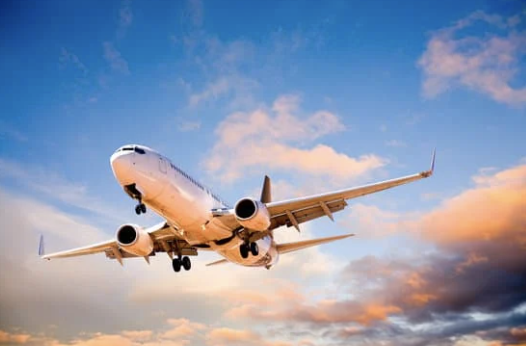
By Karlene Petitt PhD. MBA. MHS
Author of Be The Change Passenger Safety Needs
The airline industry is facing turbulence in 2025, with flights feeling more unsafe and customer satisfaction declining. It’s time to take a closer look at the individuals in the boardroom who are tasked with providing oversight to the management teams of America’s biggest airlines.
The major US airlines, including Delta Airlines, American Airlines and United Airlines, all have board committees that oversee safety, but the members of these committees generally lack actual experience overseeing airline safety. This begs the question – how can these committees properly oversee safety with no direct experience?
For example, 75% of the members of American Airlines’ Safety Committee have backgrounds primarily in the retail and investment sectors, with only 25% of the members having a transportation background. United Airlines puts safety under their Public Responsibility Committee, and 29% of the committee members have airline pilot and transportation experience. The remainder of the committee have backgrounds in retail/consumer and finance/investment sectors. Delta’s Safety and Security Committee has 29% of committee members with an aviation background, but this still is not enough when safety should be paramount for these major U.S. carriers.
The lack of focus on safety is tangible. Alaska Airlines, for example, not only maintains safety as a component of their executive annual pay program, but maintains a standalone Safety Committee by the Board. By no coincidence, Alaska Airlines continues to rank above Delta, United and American for their safety record.
In fact, Delta’s Board of Directors does not have sufficient expertise in key areas, such as airline and transportation experience and cyber and risk backgrounds, which has contributed to infrastructure and safety failures. Delta’s Safety & Security Committee met fewer times than any other committee, with only six meetings, compared to the Personnel & Compensation Committee’s nine meetings in 2023. The elevated importance of compensation over safety matters directly contradicts the “Delta Difference,” whereby the company states its “commitment to industry-leading customer service, safety and innovation.”
Delta’s Board fails to account for mission-critical skills. For example, in the seven directors that have been added since 2022, only one new director has experience in cyber/ technology oversight, despite this being cited as a top priority for Boards in 2024.
Moreover, Delta’s Board has only one independent director with airline/ transportation experience, according to the Skills and Experiences of Independent Director Nominees in the 2024 Delta Airlines Proxy Statement. Michael Huerta, a former Administrator of the Federal Aviation Administration (FAA). Mr. Huerta’s term with the FAA ended in January 2018 and he was named to the Delta Board only four months later, in April 2018.
Although Mr. Huerta is credited as the airline/ transportation expert on Delta’s board, his track record is certainly not faultless when it comes to safety. Because of faults during his tenure at the FAA, Mr. Huerta rightly oversaw the issuing of the Final Rule mandating the implementation of Safety Management System (SMS) for all certificate holders under Part 121 of the Code of Federal Regulations (CFR), which generally included U.S. domestic passenger airlines and cargo operations. The SMS was designed to manage safety risk and assure the effectiveness of safety risk controls.
Mr. Huerta’s addition to the Delta board, a mere four months after his departure from the FAA, should raise questions about what Delta was hoping to gain from these connections. Why is a former FAA administrator allowed to step onto Delta’s board, receiving associated compensation, when federal law prohibits the FAA from any compensation from airlines? Is delayed payment not still compensation?
Additionally, Mr. Huerta was the FAA administrator during the production of the MAX and stepped onto Delta’s board three months prior to the first MAX crash. Why did Delta stop all Boeing orders after Mr. Huerta’s appointment but BEFORE any 737 MAX faults were known to the public?
Why did Delta remove Ed Bastian as the “accountable executive” of the Federal Regulation Safety Management System (SMS), which Huerta enacted in 2018 and designated the CEO to be the responsible executive to SMS?
These questions should be raised for greater accountability from our top airline executives. The safety issues plaguing the industry today are not Delta’s alone, but it is clear that their Board, in particular, lacks the requisite skills to properly put safety at the core of their business.
Karlene Petitt is a distinguished figure in the aviation industry, celebrated for her extensive career as an international airline pilot, her pivotal role in advocating for aviation safety, and her success as an author and speaker. Karlene holds the following Type-Rating: A350, A330, B777, B747-400, B747-200, B767, B757, B737 and B727.
Contact:
CorpGov.com
John Jannarone
Editor-in-Chief






